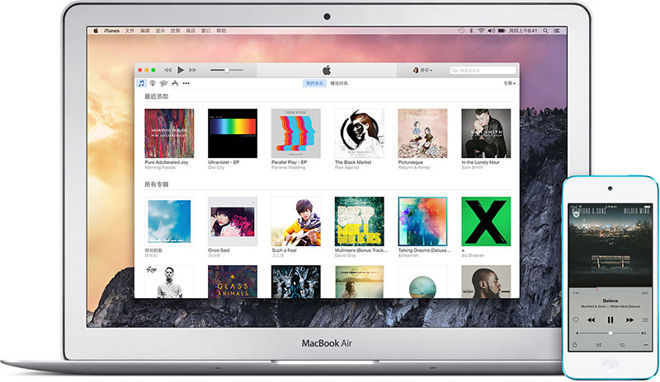Will the Rakuten Buyout Really Help Kobo Succeed?

Like many I was thrilled for Kobo because this was a great opportunity for them to call on the resources of a much bigger and more capable company – one that has toeholds in any number of markets and relationships with a vast network of companies. All in all, this was Kobo’s chance to earn their position as the third major ebookstore.
That’s the position a lot of bloggers took, but one of my readers took that idea a step further and looked at what it would really mean for Kobo.
He pointed out that Kobo will probably need time to integrate with the rest of Rakuten before they can really start working together. Yes, they’ll be great once they do, but that’s not going to happen any time soon.
Let’s consider what that delay could mean. I estimate that it will take 6 months to a year to see their joint efforts really take hold, and that’s not a good thing for Kobo. The ebook market is so volatile right now that 6 months to a year of stalled development could be the kiss of death. Amazon won’t be standing still. Apple won’t be standing still. And guess what? Barnes & Noble won’t be standing still, either.
William Lynch said on Monday that the Nook will be going international some time in the next 4 months. I hope for Kobo’s sake that he didn’t mean that the Nook ebookstore would be going international as well; that would almost certainly cost Kobo any chance of being one of the majors.
Think about it. In the next 6 months to a year, we’ll have Amazon expanding their presence worldwide. We’ll also have Apple expanding their presence worldwide (and Apple are already in 3rd place in the US market with 10% or so). Add Barnes & Noble to the international scene and it will quickly become a 3 way fight.
If Kobo are standing still while Amazon, Apple, and B&N are fighting it out, they won’t be building market share as aggressively,and this could doom them to be an also ran.
Of course, we don’t really know what will happen, and Kobo could keep chugging away. Also, some events won’t be delayed by the integration; for example, the European launches will likely happen in the next 6 months regardless of how well Rakuten and Kobo are working together. But after that, who knows?
You have to admit that the pessimistic view does have merit. It took Amazon close to 3 years after buying Mobipocket to release the Kindle, which has clearly come to dominate the market. Their patience paid off.
Also, rushing things could destroy everything. Look at HP. They released the TouchPad just under a year after buying Palm and they failed so big that they pretty much killed off webOS. I doubt Rakuten will want to copy that mistake, and that makes it more likely that they will take the time to integrate Kobo properly.
In any case, I’m looking forward to watching it unfold. What do you think?


Comments
fjtorres November 9, 2011 um 5:37 am
Before the sale, Kobo was a small operation with big ideas and limited resources. Expansion was resource-constrained; they have presence in several regional markets but like most startups in expansion mode their expenses outpaced revenue. Parent Indigo was not exactly flush with cash so there was a risk of hitting a wall in the next year or so.
After the sale, they’ll likely have more resources to play with but they’ll have to align with Rakuten’s global ebook strategy. Although it is quite possible that that *is* Rakuten’s global ebook strategy: give Kobo money to grow and watch the profits roll in later. 😉
One of the reasons for the hefty price Rakuten paid is that Kobo controls, according to the GLOBE AND MAIL,
http://www.theglobeandmail.com/globe-investor/315-million-kobo-takeover-deal-a-windfall-for-indigo/article2229733/
a US market share in the high single digits/low double digits (read:8-12%). If true, that means the US market is pretty much foreclosed to new players and any share gains will have to come out of Amazon or B&N’s, hide which is something I expect both to actively resist. 😉
So, again, Kobo might’ve been headed for trouble without deeper pockets and any short-term disruption might be better than the old status quo.
Where things get interesting is how Kobo uses its deeper pockets: do they keep relying on local partners (necessary when ambition exceeds resources) or do they grow their own operations like Amazon, maybe starting with Rakuten’s properties as beacheads? Buy.com in the US and Play in the UK are solid partners unto themselves so there may be no need for further assistance once current contracts expire.
Technology: Might Kobo feel confident enough to emphasize kepubs and de-emphasize Adept? Maybe adopt/support Nook’s DRM to go after Nook sales? Epub3 support will likely come sooner now, and a Special Offers Kobo with Buy.com ties is certainly a option for the US…
Hey! They might jump on Mirasol! (If it ever materializes.)
A lot of what Amazon has been up to of late has been to leverage Kindle to build up other parts of their empire; Kobo isn’t pervasive enough (yet) for that but the possibility to do so might lead to more Amazon-style moves by Kobo.
B&N had better not obsess on Amazon too much or they risk getting blindsided by Kobo.
Nate Hoffelder November 9, 2011 um 6:41 am
My source says that Kobo are in 4th place in the US, with iBooks in 3rd at 10%. That’s part of the reason why i don’t think Kobo are a major player.
fjtorres November 9, 2011 um 5:49 am
Check this:
http://www.canadianbusiness.com/blog/business_briefings/56208–indigo-sells-kobo-a-q-a-with-heather-reisman
CB: Heather says it’s going to take $100 million next year to keep Kobo competitive. Do you think that’s a fair number?
MS: You know the thing that’s been constant from the beginning is that the capital requirements in this market continue to grow. And I think the reason for that is that the transition to digital just continues to move faster than anyone expected. Certainly the capital needs in the next couple of years, without revealing too much about strategy, is in the hundreds of millions. And whether a hundred gets you to 6 months or 12, we’ll see—but it’s certainly in the hundreds of millions.
CB: And Rakuten’s obviously willing to invest those huge sums in this venture.
MS: Absolutely. They built a tremendous business as an e-commerce player n Japan, the largest economy outside of the U.S., and they have been expanding globally. They see how important digital content is to the future of e-commerce for them. e-commerce for them.
$100s of millions in capital to stay in the game?
Uh-uh.
Nate Hoffelder November 9, 2011 um 6:38 am
So Indigo got out of the market when they realized they didn’t have the resources, then?
You know, I;m not sure that rakuten will want to pump $100m a year into Kobo without a lot of input on how the money is spent. That back and forth will slow down development, which would tend to prove my point.
Fbone November 9, 2011 um 3:12 pm
Japanese companies tend to be more conservative than North American ones. I don’t see them spending that much money.
fjtorres November 9, 2011 um 4:27 pm
That’s their story and they’re sticking to it. 🙂
Alexander Inglis November 9, 2011 um 4:54 pm
It’s pure speculation, of course, but Rakuten did state they strongly aligned with Kobo’s ability to partner locally to grow their business (and that is the Rakuten model). Second, Rakuten has agreed to put up $315 million cash to buy the operation as is; I doubt they will flinch spending $100 million and more to fund the ongoing business plan; they certainly are not buying Kobo for cash flow.
Rakuten has some exposure to Europe and the US — a nice synergy with Kobo’s existing trajectory. And it does bring entry into a number of other markets Kobo has no exposure to, particularly throughout Asia.
Rakuten has designs on being an Amazon-like company, delivering physical and electronic goods around the world with online etailing as the engine. Kobo brings an almost proven ebook business to the table with genuine momentum. It’s not hard to tease out the strategic benefits it brings to the larger Rakuten vision. Given that, Rakuten may well dig deep.
And I don’t think Kobo is likely to face serious operational stalls, assuming they do close the deal in earlyish Q1. I’d expect they will simply execute the existing plan, and possibly even put the foot gently on the accelerator.
Doug November 10, 2011 um 4:30 pm
Re NOOK international expansion:
The tea leaves all say this is a partnership with Waterstone’s. About a year ago, "The Bookseller" quoted B&N CEO William Lynch, "We’ve had discussions with Waterstone’s, but we don’t see announcing anything in the next six months."
The other day, "The Bookseller" ignited the latest round of excitement by reporting that Lynch "told The Bookseller that publishers and consumers in the UK should expect an announcement within the next four months about the Nook going international."
Notice that it says "in the UK", not world-wide. And that it’s "the Nook" that’s going international, not B&N. That fits with a Waterstone’s partnership.
The obvious region that B&N hasn’t expanded into is Canada. I wonder if Indigo/Chapters might be interested now that it’s no longer married to Kobo? On the other hand, it’s taking for-evar to get the (presumed) Waterstone’s partnership in place.
Can Kobo Cope? – Atley Jonas.com November 14, 2013 um 6:05 pm
[…] the U.S. market seems to be a three-way fight between Amazon, Barnes & Noble, and Apple, with Kobo trailing the pack, it’s hard to discount the dent that this Canadian company can […]